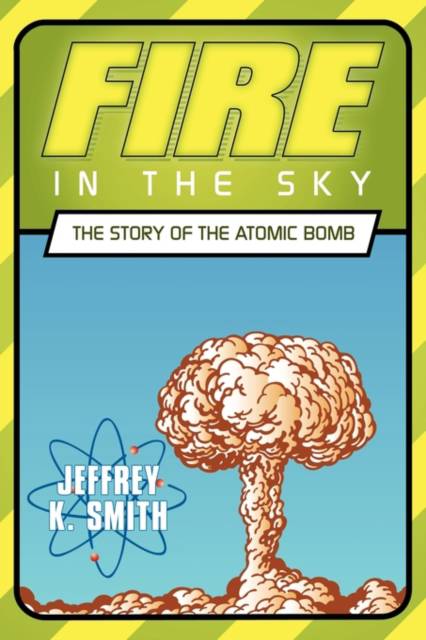
Je cadeautjes zeker op tijd in huis hebben voor de feestdagen? Kom langs in onze winkels en vind het perfecte geschenk!
- Afhalen na 1 uur in een winkel met voorraad
- Gratis thuislevering in België vanaf € 30
- Ruim aanbod met 7 miljoen producten
Je cadeautjes zeker op tijd in huis hebben voor de feestdagen? Kom langs in onze winkels en vind het perfecte geschenk!
- Afhalen na 1 uur in een winkel met voorraad
- Gratis thuislevering in België vanaf € 30
- Ruim aanbod met 7 miljoen producten
Zoeken
€ 30,45
+ 60 punten
Uitvoering
Omschrijving
In the summer of 1945, the world was introduced to the horrific consequences of nuclear warfare. On the sixth day of August, an American B-29 bomber dropped a revolutionary new weapon, the atomic bomb, over the Japanese city of Hiroshima. The catastrophic detonation instantly killed over 100,000 residents of the city, with thousands more dying from explosion-related injuries in the months and years to follow. Three days later, a second nuclear weapon was released over the skies of Nagasaki, killing over 40,000 Japanese citizens, most of whom were civilians. Six days after the second nuclear attack, the Empire of Japan surrendered, and World War II was ended. Jubilation among the Allied countries was tempered by a profound sense of relief; nearly four years of bloody war had finally come to an end. Some 406,000 Americans died during World War II, while another 671,000 were wounded. By the end of the war, an astonishing one out of every one hundred thirty six Americans had been killed or wounded in the fighting. American military personnel, along with their spouses, children, parents, and friends, were eager to see the bloody conflict come to and end, by any means possible. Consequently, President Harry Truman's decision to utilize the atomic bomb to bring Japan to its knees was wildly popular in the weeks and months that followed the Japanese surrender. In the six plus decades since Hiroshima and Nagasaki, however, many have questioned both the necessity and morality of America's deployment of the bomb. Significantly influenced by revisionist history, passionate debate has focused on the justification for nuclear warfare to subdue an enemy already nearing defeat. Like so many other momentous events, the reader must balance the reality of the world in 1945 against the seemingly clearer prism of revisionist history. Fire in the Sky: The Story of the Atomic Bomb chronicles the development and use of the first atomic bombs. This is a remarkable story about the lives and times of the brilliant scientists, seasoned military officers, and determined government leaders, who reshaped history, and irrevocably changed the dynamics of warfare.
Specificaties
Betrokkenen
- Auteur(s):
- Uitgeverij:
Inhoud
- Aantal bladzijden:
- 136
- Taal:
- Engels
Eigenschappen
- Productcode (EAN):
- 9781449092665
- Verschijningsdatum:
- 3/03/2010
- Uitvoering:
- Paperback
- Formaat:
- Trade paperback (VS)
- Afmetingen:
- 152 mm x 229 mm
- Gewicht:
- 208 g

Alleen bij Standaard Boekhandel
+ 60 punten op je klantenkaart van Standaard Boekhandel
Beoordelingen
We publiceren alleen reviews die voldoen aan de voorwaarden voor reviews. Bekijk onze voorwaarden voor reviews.









